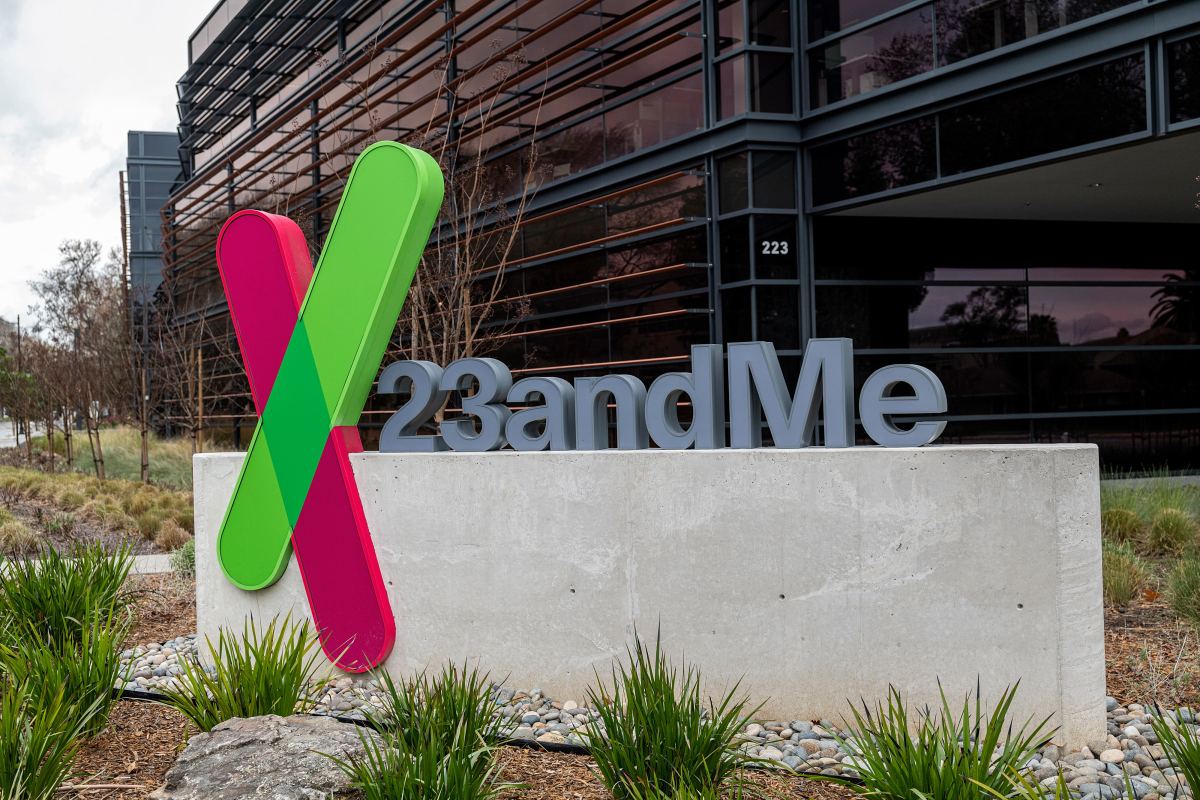Quarterly Tax Filing Deadline: What You Need to Know by September 15

Key Takeaways

- Quarterly Tax Importance: The September 15 deadline is essential for self-employed individuals and small business owners to ensure timely tax compliance and avoid penalties.
- Potential Penalties: Missing the deadline can lead to significant financial penalties, including interest and late filing fees, as well as an increased risk of IRS audits.
- Estimated Tax Payments: To avoid underpayment penalties, calculate your estimated taxes accurately, considering all applicable income and business deductions.
- Organization is Key: Keeping organized records of income and expenses is crucial for successful tax filings and minimizing stress during the filing process.
- Tax Software vs. Professional Help: Consider using tax software for straightforward situations or hiring a tax professional for complex tax matters, ensuring the best approach for your needs.
- Common Mistakes to Avoid: Be aware of crucial errors, like underestimating liabilities and missing deadlines, to maintain compliance and optimize your tax strategy.
As September 15 approaches, it’s time to gear up for one of the most important dates on the tax calendar—quarterly tax filing deadline. If you’re self-employed or run a small business, you know how crucial it is to stay on top of your tax obligations. Missing this deadline can lead to penalties that can significantly impact your finances.
Understanding your responsibilities and preparing in advance can save you stress and money. Whether you’re filing for the first time or are a seasoned pro, knowing what to expect can make the process smoother. Let’s dive into what you need to know about the September 15 deadline, ensuring you’re ready to meet your tax obligations with confidence.
Overview of Quarterly Tax Filing

Quarterly tax filing remains crucial for self-employed individuals and small business owners. Understanding your tax obligations helps ensure timely compliance and minimizes penalties. The IRS requires you to estimate and pay taxes on your business income quarterly. This includes federal taxes, self-employment tax, and any applicable state taxes.
When preparing for quarterly tax filings, focus on key elements such as tax documentation and record-keeping. Maintain organized records of business expenses and income reporting to assist in estimating your tax liability. Utilize tax software or consult a tax advisor to streamline the tax preparation process, ensuring you include all eligible business deductions.
Tax planning strategies play a critical role during this period. Leverage small business tax credits and consider tax deductions like the home office deduction and mileage deduction to optimize your tax savings. Staying informed about tax laws and deadlines helps you avoid potential tax penalties and makes the filing process smoother.
Timely quarterly tax filings not only ensure compliance but also provide insight into your overall financial health. Consider engaging a tax consultant for tailored advice on tax filings, audit preparation, and efficient bookkeeping practices. This proactive approach enhances your tax strategy and positions your business for success.
Importance of the September 15 Deadline

The September 15 deadline is vital for your tax responsibilities, particularly if you run a small business or are self-employed. Understanding and adhering to this deadline can prevent financial burdens and ensure compliance with IRS regulations.
Consequences of Missing the Deadline
Missing the September 15 deadline can lead to various financial penalties. You may incur interest and penalties for underpayment or failure to make estimated tax payments on time. The IRS imposes strict late filing penalties for tax returns filed after the deadline. For corporations and partnerships, these penalties accumulate quickly, resulting in additional tax liabilities over time. Failure to comply with the due dates increases your risk of a tax audit, which can have further implications for your business.
Benefits of Timely Filing
Timely filing of your tax returns and estimated taxes brings several advantages. You can avoid penalties and interest, ultimately reducing your overall tax liability. Timely payments enhance your financial planning, providing a clearer picture of your business income and expenses. Meeting deadlines also alleviates stress associated with last-minute tax preparations. Adhering to tax deadlines fosters compliance with tax laws, maintaining goodwill with the IRS and ensuring a smoother tax filing process in the future.
Key Dates and Requirements

Understanding key dates and requirements for quarterly taxes is essential for small business owners. The upcoming deadline for estimated tax payments falls on September 15. This date affects self-employed individuals, investors, and retirees who need to manage their tax obligations efficiently.
Who Needs to File?
You must file estimated taxes if you’re self-employed, invest income, or receive income not subject to withholding. The IRS requires estimated payments when you expect to owe at least $1,000 in taxes after subtracting your withholding and tax credits. If your withholding is less than the smaller of 90% of your current year’s tax liability or 100% of your prior year’s tax, submitting estimated tax payments is necessary. Types of income subject to estimated taxes include:
- Business income: If you run a small business, your income from sales and services counts towards your tax liability.
- Investment income: Income from dividends, interest, and capital gains contributes to your estimated tax obligations.
- Retirement income: Withdrawals from retirement accounts may trigger tax liabilities.
- Rental income: Cash received from rental properties adds to your total income.
Calculation of Estimated Taxes
Estimating your taxes helps ensure compliance with IRS regulations. To calculate your estimated taxes, start with estimating your total tax liability for the year, which includes self-employment tax, income tax, and applicable state taxes. You’ll divide this total by four to determine your quarterly payment amount. Utilize tools such as Form 1040-ES for guidance on calculations.
Additionally, consider factors like business deductions and credits to decrease your taxable income. Common deductions for small businesses include:
- Business expenses: Track and deduct legitimate expenses such as supplies and utilities.
- Home office deduction: If you operate a business from home, you might qualify for this deduction.
- Mileage deduction: Keep a log of mileage driven for business purposes to claim this deduction.
Staying organized and accurate with your bookkeeping helps in calculating estimated taxes and preparing for future tax filings.
Tips for Successful Filing

Successful filing for your quarterly tax payments requires careful organization and strategic planning. Stay ahead of deadlines by implementing effective practices.
Organization of Financial Documents
Organizing financial documents is essential for accurate tax filings. Use these strategies:
- Track Income: Keep clear records of all income sources, including receipts for business expenses, interest statements, and 1099 forms.
- Expense Records: Maintain detailed documentation of deductible expenses, such as business expenses, home office deductions, and mileage deductions. This enhances accuracy in determining your tax liability.
- Previous Tax Returns: Store copies of past tax returns. They assist you in comparing income and deductions over the years.
- Supporting Documents: Collect all necessary supporting documents, such as W-2 forms and invoices for claimed deductions. Proper documentation aids in tax audit preparation and boosts compliance.
Using Tax Software vs. Professional Help
Choosing the right method for managing your tax obligations can affect your filing experience. Consider these approaches:
Using Tax Software
- Convenience: Tax software simplifies the estimated tax payment process. Programs like TurboTax or H&R Block guide you through each step seamlessly.
- Accuracy: Many tax software options include calculators and error-checking features to enhance compliance with IRS regulations.
- Cost-Effective: Software solutions often present a more budget-friendly option than hiring a tax accountant, particularly for straightforward tax situations.
- Time-Saving: These tools automate calculations and form filling, allowing you to focus more on your business.
Professional Help
- Complex Situations: For intricate tax matters, such as multiple income streams or specific tax implications, consulting a tax advisor can provide essential insights and ensure adherence to tax laws.
- Customized Advice: A tax consultant offers tailored recommendations based on your unique financial circumstances, optimizing your tax strategy.
- Audit Support: If the IRS audits your business, having a professional on your side can be invaluable. They offer guidance and representation during the audit process.
- Time-Saving: While professional assistance might incur higher costs, it alleviates the stress associated with tax preparation and allows you to concentrate on growing your business.
Common Mistakes to Avoid

Avoid these common mistakes to ensure compliance and enhance your small business tax strategy.
- Missing the Due Date
Ensure you make your quarterly estimated tax payment by September 15. Late payments incur penalties and interest on the unpaid tax liabilities.
- Underestimating Tax Liability
Accurately estimate your tax liability. If your estimated payments fall short of the required amount—generally 90% of the current year’s tax or 100% of the previous year’s tax—penalties may apply.
- Not Considering Special Rules
Be aware of special rules for certain groups, including farmers and fishermen. IRS Publication 505 outlines specific provisions impacting their tax filings.
- Not Using Correct Tax Forms
Use appropriate tax forms, like Form 1040-ES for estimated taxes. This form includes a worksheet to help you determine your payment requirements.
- Ignoring Payment Options
Take advantage of multiple payment options. You can pay online, via phone, or through the IRS2Go app, ensuring timely and convenient transactions.
- Neglecting Expense Tracking
Maintain organized records of your business expenses. Accurate expense tracking not only helps reduce your tax liability, but also supports your claims for deductions.
- Failing to Engage a Tax Professional
Consulting a tax advisor or tax accountant can provide tailored guidance. A professional can help you navigate complex tax laws and optimize your tax savings through available credits and deductions.
Conclusion

As September 15 approaches it’s crucial to stay proactive about your quarterly tax obligations. By preparing in advance you can avoid penalties and ensure compliance with IRS regulations. Remember that organized records and accurate calculations are key to a smooth filing process.
Utilizing tax software or consulting a tax professional can provide valuable support tailored to your specific situation. Embracing strategic tax planning not only helps you meet deadlines but also positions your business for financial success. Take the necessary steps now to alleviate stress and enhance your overall financial health.
Frequently Asked Questions

What is the quarterly tax filing deadline?
The quarterly tax filing deadline for self-employed individuals and small business owners is September 15. It’s crucial to file by this date to avoid penalties and interest from the IRS.
Who needs to file estimated taxes?
Individuals who expect to owe at least $1,000 in taxes after accounting for withholding and tax credits must file estimated taxes. This includes self-employed individuals, investors, and retirees with certain income types.
What are the consequences of missing the tax deadline?
Missing the quarterly tax filing deadline can lead to late filing penalties, interest charges, and increased tax liabilities. Additionally, it raises the risk of an IRS audit.
How do I calculate my estimated taxes?
To calculate estimated taxes, estimate your total tax liability for the year and divide that amount by four for quarterly payments. Tools like Form 1040-ES can assist in this process.
What records should I maintain for tax filing?
It’s essential to keep organized records of your business income and expenses, previous tax returns, and any supporting documents. This will help ensure accurate calculations and compliance.
Should I use tax software or hire a tax advisor?
Tax software is convenient and cost-effective for many. However, if your taxes are complex, seeking a professional tax advisor can provide tailored advice and audit support.
What common mistakes should I avoid when filing taxes?
Avoid missing due dates, underestimating your tax liability, and neglecting expense tracking. Always use the correct forms and be aware of specific rules relevant to your situation.
What tax planning strategies can optimize my savings?
Utilizing small business tax credits and deductions, maintaining proper records, and engaging in strategic planning can help you optimize your tax savings and reduce liabilities.
Image Via Envato
This article, "Quarterly Tax Filing Deadline: What You Need to Know by September 15" was first published on Small Business Trends
What's Your Reaction?
 Like
0
Like
0
 Dislike
0
Dislike
0
 Love
0
Love
0
 Funny
0
Funny
0
 Angry
0
Angry
0
 Sad
0
Sad
0
 Wow
0
Wow
0































































































